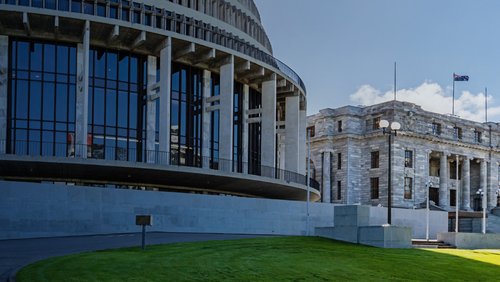11 Jun 2025
Engineering New Zealand is concerned that New Zealand’s standards system is struggling to support public safety, economic growth and infrastructure – and is in urgent need of overhaul.
“The standards system underpins nearly every part of our daily lives – from everyday products to complex infrastructure. Yet despite this, our standards system is chronically underfunded, increasingly outdated and out of step with international best practice,” says Engineering New Zealand Chief Executive Dr Richard Templer.
“An unsustainable funding model, that relies heavily on the work of unpaid volunteers and a user-pays model, has resulted in a reactive system where many standards and outdated or missing. Some have not been reviewed since the 1990s when best practice is reviewing every 5-7 years.”
“This lack of updates increases the risk to public safety and poorly constructed buildings– something we cannot and should not accept. New Zealand has a history of paying the price when something goes wrong - for example, poor standards contributed to failures leading to the the leaky homes crisis.”
For those that rely on standards, such as engineers and builders, accessing them can be prohibitively expensive. This presents a major barrier for small and medium firms, who may be forced to use outdated standards or forgo them entirely. This increases the risk of inconsistent practice and leads to poorer outcomes.
Concerningly, there is also often a disconnect between regulation and standards. It is not uncommon that standards cited in the Building Code don’t exist anymore or require changes to remain workable.
Finally, New Zealand is missing opportunities to adopt international standards that reflect global practice, putting us behind the rest of the world. International standards are underused and undervalued – and wider adoption of them would save time and cost and support higher quality outcomes.
“These compounding issues in the standards system paint a grim picture. We know that many people are working hard despite the current system, including a small group of expert volunteers who shoulder too much of the burden. One standard took five years to develop. We had to sub out volunteers to prevent burnout.”
“We support Government’s work to explore a more effective standards system, but need it done urgently. Modernising and rebuilding will take years – so we can’t delay” says Templer.
To address these urgent issues, Engineering New Zealand is urging the Government to:
- Bring in a sustainable funding system, using existing industry levies (ie. building levy) to better fund Standards NZ. As there is little to no transparency around how these levies are currently spent, more visibility around this is also important.
- And expand the range of funded or subsidised standards, and cover volunteers travel expenses
- Ensure legislation consistently references the most-up-to-date standards
- Commit to regularly reviewing and updating standards that reflect international best practice and adopt and integrate international standards more widely.
- Develop a standards strategy and plan that drives these changes and prioritises areas where the risk is highest.
- Modernise the model – including looking at how volunteers are used and how standards are accessed.







